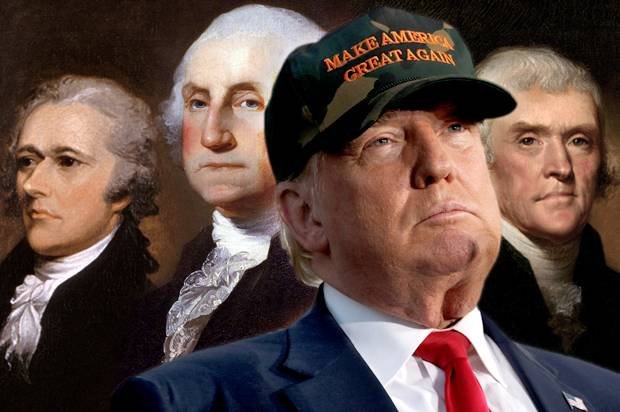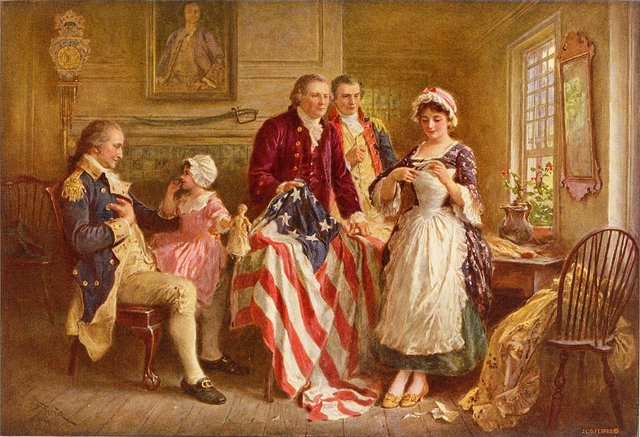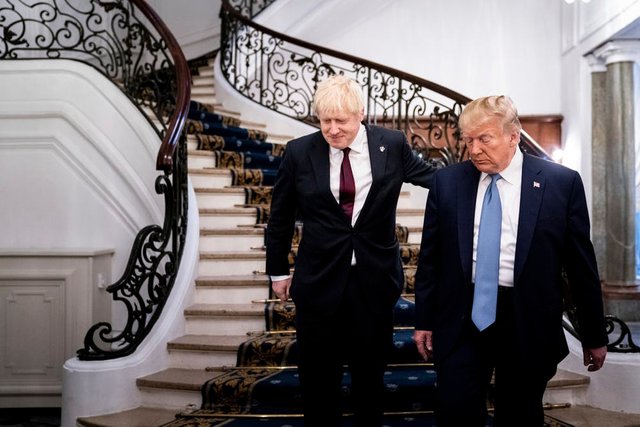The American founders ensured that the president could never suspend the congress
The British monarch has the right to determine when the Parliament is in session - or, more specifically, when that is not the case.

With a long tradition and possibly with the unwritten constitution of the United Kingdom, the new Prime Minister Boris Johnson has asked Queen Elizabeth II to suspend the national legislator for five weeks, starting on September 9 or shortly thereafter. She agreed.
Freed from having to take annoying questions at the House of Commons, Johnson claims he could concentrate on getting a better deal for Britain while preparing to leave the European Union on October 31. Many British lawmakers, including some at Johnson's own party, are furious and fight back. But if the trick succeeds, it will be one of the longest parliamentary suspensions since the British last withheld their monarch's head.
Given the similarities between the American and British political systems and the personal parallels - and affection - between Johnson and US President Donald Trump, Americans may wonder if the president has a similar power to suspend the convention.
The answer is a very clear no - thanks to the preconceived and strong historical knowledge of the founders of the country.
Break up, but still learn by example

On July 4, 1776, Congress broke all ties with Britain. The Declaration of Independence included a rejection of George III, although Americans initially admired him when he took the throne in 1760. They also rejected the monarchic form of government that embodied King George.
Compared to other kingdoms in Europe, ruled by arrogant monarchs and aristocrats, the British monarchy was not so bad. In fact, the institution contained a number of functions that Americans liked. One was the system of representative government. King George and his ministers could only pass laws, including laws that tax the British people, with Parliament's permission. The Lower House, the lower chamber of the legislator, was an elective course chosen in the 18th century by men who owned and sometimes women who owned in England, Scotland and Wales. Although Britain was not a democracy, it was not an absolute monarchy and certainly not a dictatorship.
From the earliest days of the English settlement, Americans held the legislative part of the British monarchy in high regard. They have modeled their own colonial meetings in parliament as much as possible, in particular the House of Commons. Each colony had a governor and a council, but the most important branch was the representative assembly. Only colonial meetings could levy taxes, and all other laws also required their approval.

After independence, the colonies became states. Americans, David Ramsay of South Carolina wrote in 1789, were now a "free people who collectively had the right to govern themselves." If they had a government based on "the consent of the governed," as the Declaration proclaimed, they still needed legislation that should be as strong as possible. Parliament remained an example that was worth following.
Refusal of royalties
What Americans did not want was another king. The founders admitted that although the British monarchy had failed the settlers, it worked fairly well for the British, with the King's ministers consulting Parliament on most important matters. But they knew that the "constitution" that required them to do so was an unwritten one based primarily on tradition, not on legal statutes and documents.
They also knew that just over a century earlier, another king, Charles I, had not been so accommodating. When Parliament refused his tax application in 1629, Charles dissolved the legislature and ruled as a personal prince - not for five weeks but for 11 years.
That did not go well for parliament, the British people or the king. The ensuing civil war ended with the execution of Charles in 1649 on a balcony overlooking the current Trafalgar square. The breath of the crowd as the ax cut his neck was a sound no one had ever forgotten. The kings and queens who followed him were also aware of it. When Charles's son, James II, resumed Parliament, the British sent him packing and gave the crown to William and Mary.
However, the lesson was largely a matter of use. In the 18th century the king's ministers knew how to deal with parliament, but the law did not oblige them. British princes still had enormous powers and parliament usually did what they wanted. Although it was Parliament, not George III, who initiated the American revolution by taxing the settlers without their permission, the Americans blamed the king's ministers and the king himself for the most part.
,_by_John_Trumbull.jpg)
Protection of the legislator
When Americans started to debate what kind of government they wanted for the United States, they knew they needed an executive with some of the power they attached to a monarchy. What they had in mind, however, was different from the British crown. The king, as Alexander Hamilton wrote in the "Federalist" essays, was an "eternal magistrate," who had powers that were limited only by the rules he or she chose to live by.
The newly created role of the American president, on the other hand, had clearly defined powers under the constitution, just like Congress. Crucially, the power to call or dismiss Congress was vested in the House of Representatives and the Senate, who decided together when they met and when they should be postponed. In other words, the position of president was intentionally designed without the authority to reproduce King Charles' 11-year-old tyranny - or the five-week suspension of Queen Elizabeth II and her current prime minister.
Congratulations @singhisking1! You have completed the following achievement on the Steem blockchain and have been rewarded with new badge(s) :
You can view your badges on your Steem Board and compare to others on the Steem Ranking
If you no longer want to receive notifications, reply to this comment with the word
STOPTo support your work, I also upvoted your post!
Vote for @Steemitboard as a witness to get one more award and increased upvotes!
U have got nice sense of humour man.. Good informative post.. Really appreciated 👌🏻